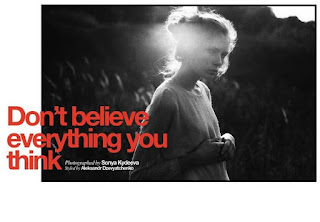"Each heart hides its pain away. Some you can see it in their eyes, and others in their smile." (from Lewenswaarheid ~ Livingtruths. Grap blad vir almal ~ Joke page for all)
We peep into our world without. We cannot
possibly see it all. Some things we choose to screen from others; they choose
to screen some things from us. Curious, we open our blinds to let in the sun,
to see the light. Caring, we close our blinds to shade our more delicate colours
from fading. Protection is innate. Blinds serve a purpose. We rig them up, or
allow another, or get someone else to do it, all the while intending that
degrees of privacy, of comfort, of commonality be obtained. It is a
perpetuation of our acculturation. We do but remain cave dwellers. Evolution
brought us down from the trees and into the firelight, yes, yet evolution still
(especially with our some-what surpassing aeons of circadian rhythms,) …evolution
still keeps us comfortable when ensconced by a roof overhead, with solid walls
around us, and a particular privacy while we sleep.
So, we put up blinds. (Yet the JoHari window
panes would have us aware of the quadrants of our lives.) We see ourselves
somewhat clearly. Others see in us the things we do not even see in ourselves.
We see in each other the personality we both know. And then there is that
fourth pane; the unknown in either you or me, however many blinds we may
release from their catch.
But some blinds are made of metal, others of
plastic, or wood, and some, flimsy and perhaps least permanent, are made of
paper. Yet small paper cuts from putting up paper blinds can leave blood
traces, forever, down the lines.
History proves it. King William (1066 and all
that) with Queen Matilda begat a Henry who also begat a Henry who, with Eleanor,
begat eight children. One of them was that famous crusader! (Ha! In ‘Finian’s
Rainbow’ there’s a catchy song about ‘begatting’. (Yes, I once played Og, the
leprechaun.) Indeed, all down the line we leave our blood traces. Even Og becomes
a human!
“Did it hurt much?” one might ask of the beleaguered.
But no, at the evidence of bandaged paper cuts, revealed at a dinner
conversation, I first asked my friend if he’d "left blood smears on the blinds?" After
all, the permanent is what can really signify. All down the lines of our family
constellations, since the very long-ago history of Adam and Eve, we’ve been
affected, imprinted, imbued with, and acculturated by the versions of our past.
Whether being a reincarnation, or not, our very DNA continues the physical mold
by which we are procreated. And whether self-made or not, there is a Biblical
sense of the “sins of fathers” being perpetuated down the lines. But when do we
water them down so much as to leave “no traces no-more”? (“True love leaves no
traces,” goes the Leonard Cohen song.) So, is there a moment, if not a given
lifetime, in which one may indeed spill over and become so large-a-lake as to
leave but the original vessel of one’s birth-passage just that, a mere corridor
by which one found one’s own door? Yet not even adopted babies escape their
natures. Nurturing may indeed layer the psyche with new enlightenments, but
deeply at root go the bloodlines, all the way back, and at some provocation,
history proves, some trace of the past, like a seam or a crack or a scar or a
vein, surfaces to show that in our reaction (as opposed to a response) we are composites of the past, atavistically,
a-spiralling toward what?
There lies the question! What’s it all about? If
not about contributing-toward-the-health-of-the-Whole, then what? (And never
mind whose “Whole”!) Problem is, there’re so very many of us at variance with
just what that “health” part means! The economy? The populace? The family? The
self? The nation? The world? What about the universe? How (the hell) do I
contribute to that?
My friend jested, hurt: “What about me?” he
asked, showing bandages. “Never mind the blinds!”
Ha! Indeed. Each thing that we do, each moment
that we have, each intention, followed by an action, impacts an ‘other’; it resonates.
Yes, one best be careful with one’s blood,
(especially ‘bad’ blood) one trusts, all down those lines.



